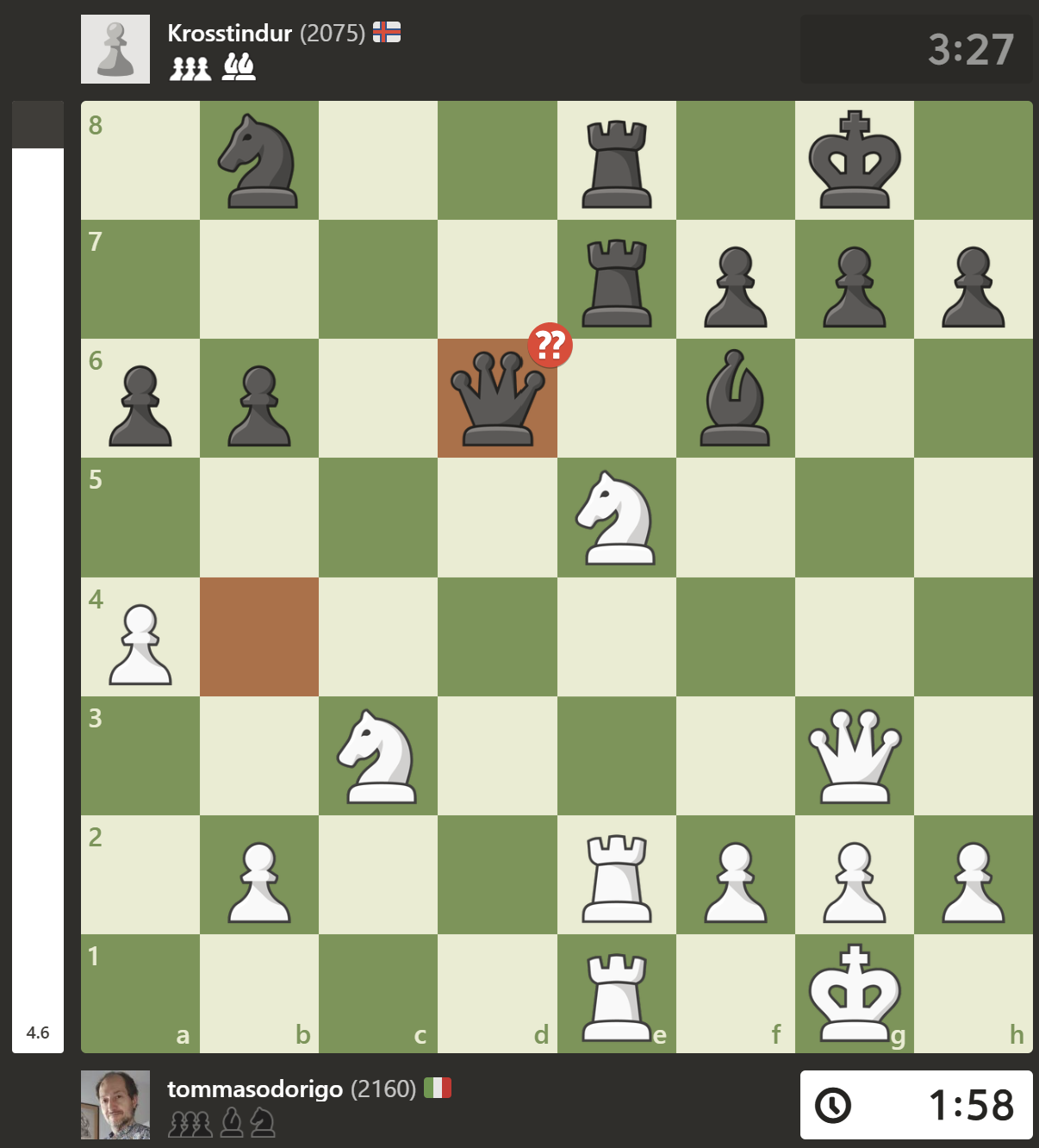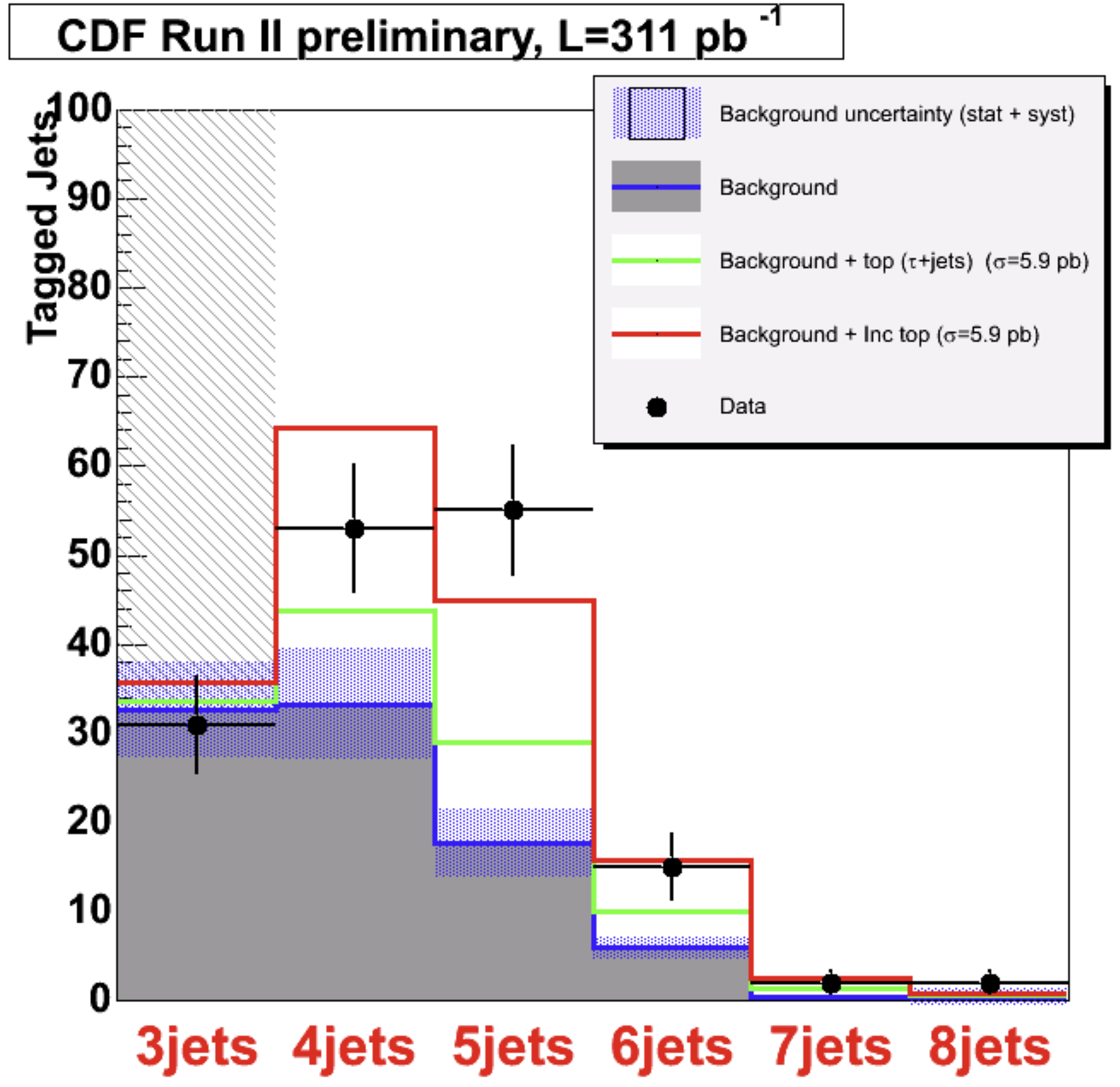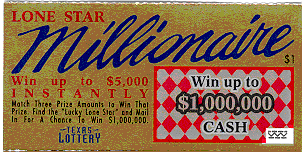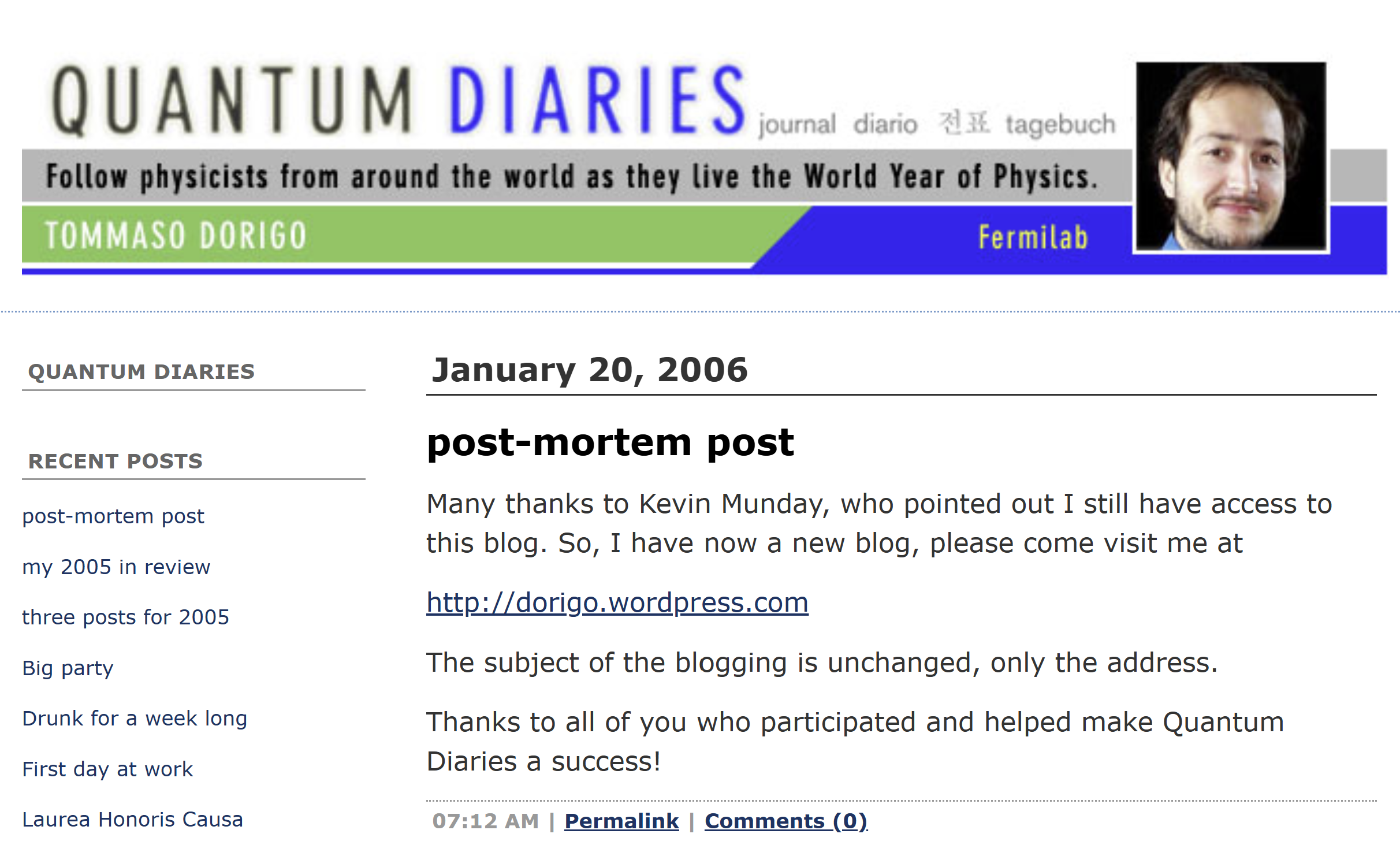 Holiday Chess Riddle
Holiday Chess RiddleDuring Christmas holidays I tend to indulge in online chess playing a bit too much, wasting several...
 Why Measure The Top Quark Production Cross Section?
Why Measure The Top Quark Production Cross Section?As part of my self-celebrations for XX years of blogging activities, I am reposting here (very)...
 The Buried Lottery
The Buried LotteryAs part of my self-celebrations for having survived 20 years of blogging (the anniversary was a...
 Twenty Years Blogging
Twenty Years BloggingTwenty years ago today I got access for the first time to the interface that allowed me to publish...








